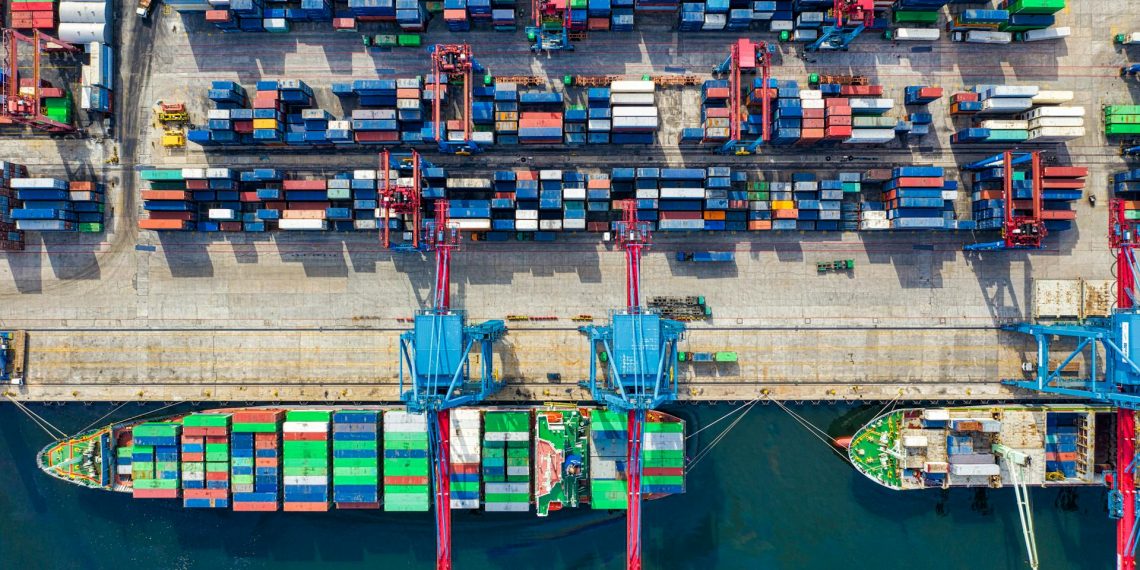A resilient supply chain must be able to innovate and adapt to new realities. The RISE-SME project relies on INESC TEC to provide supply chain stakeholders with more solutions to detect and anticipate disruptions. In Portugal, 99.9% of the business fabric features SMEs.
The goods (or components) do not always arrive at the destination point. In 2021, in the aftermath of the COVID-19 pandemic, a freighter travelling between Malaysia and the Netherlands blocked one of the main European cargo entry points: nothing passed through the Suez Canal for six days. It is one of the most practical examples of how the supply chain – which connects suppliers, manufacturers, distributors, wholesalers and consumers – can become compromised.
In an interconnected world, characterised by geopolitical conflicts and environmental crises, identifying critical disruptions – current and future – and paving the way for more resilient chains is increasingly urgent. And this is INESC TEC’s goal within the scope of RISE-SME, a project that aims to help small and medium-sized enterprises (SMEs) in the European manufacturing industry to “adopt advanced models and technologies to achieve operational independence”.
INESC TEC participates in the development of an innovative quantitative model for the analysis and management of the risks associated with the logistics chains of four important ecosystems in the European context: textile, agro-food, mobility and digital. It’s called the Supply Chain Resilience Fit Model.
“The model includes some of the main ecosystems’ context variables, and identifies the three main intervention variables considering resilience: resilience capacities, supply chain management strategies and supply chain design”, explained Ricardo Zimmermann.
n, researcher at INESC TEC.
The model developed by INESC TEC researchers, in partnership with researchers from partner institutions in Italy, Spain and Germany, will serve as a basis for the continuity of the project – until the end of 2026.
“Our concern was to develop sufficiently comprehensive models that could be adopted in different contexts. For example, in the textile ecosystem, i.e., clothing and shoes. In the upcoming stages, the researchers will test this model in more specific contexts. One of the partners of the project is CITEVE, which will support us in implementing this solution in Portugal”, added the researcher.
The solution establishes resilience not only as the process of returning to the initial state (pre-disruption), but also to innovate and adapt to new contexts. It aims to become a tool for SMEs to understand how the different strategic actions – activities, strategies, business areas – applied by actors in the distribution chain meet the characteristics of their ecosystem. The goal is for the model to improve the performance of the chain and, consequently, of the companies.
“Crucial” to SMEs
RISE-SME will also seek to create alliances between traditional and tech SMEs in industrial ecosystems and boost the adoption of advanced technologies in these companies. This could be “crucial”, mentioned Ricardo Zimmermann.
According to the European Commission (EC), in 2022, there were close to 24.3 million active SMEs in the European Union. They represent 99.8% of all companies in the non-financial business sector and employ 84.9 million people. Portugal is a paradigmatic example: in the same year, the number of SMEs was close to 1.4 million, representing 99.9% of the business fabric.
“SMEs are crucial to Europe’s competitiveness – even so when we analyse Portugal specifically. At the same time, these companies are particularly fragile regarding the impact of the different crises (increasingly frequent and extensive) that have influenced society in recent years”, he said.
The project started in January 2024, bringing together 10 partners from five countries, and will last until the end of 2026, with an overall budget of more than €2M.
The researcher mentioned in this news piece is associated with INESC TEC.


 News, current topics, curiosities and so much more about INESC TEC and its community!
News, current topics, curiosities and so much more about INESC TEC and its community!